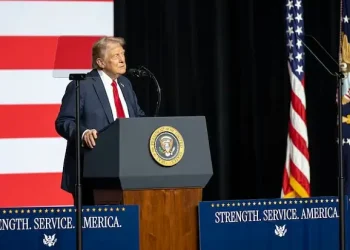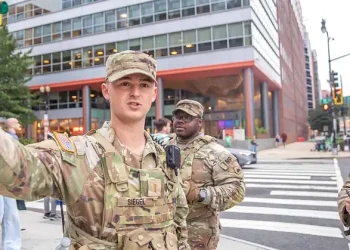The U.S. Army Chaplain Corps commemorated its 250th anniversary on July 29, 2025, celebrating a legacy of spiritual and religious support to soldiers since its inception in 1775.
Founded at General George Washington’s request, the Corps continues to play a crucial role in maintaining morale and resilience among U.S. forces.
Historical Significance
The U.S. Army Chaplain Corps was established during the American Revolutionary War, reflecting the early military’s recognition of spiritual support’s importance for troops.
Over the past 250 years, the Corps has served through all major U.S. conflicts, including the Civil War, World Wars I and II, Korea, Vietnam, Iraq, and Afghanistan.
General George Washington requested chaplains be added to the Continental Army to meet soldiers’ religious needs and bolster morale and good morals. This decision laid the foundation for a tradition that continues to this day.
Current Role and Structure
Today, the Chaplain Corps includes over 3,000 chaplains and nearly 3,000 religious affairs specialists across the regular Army, Army Reserve, and National Guard. These individuals provide critical religious support, spiritual care, crisis response services, and advisement to commanders.
Maj. Gen. William Green Jr., the 26th Army Chief of Chaplains, emphasized that today’s members are sustaining a sacred legacy initiated even before America’s founding in 1776.
Contributions to Soldier Well-being
- The Chaplain Corps enhances soldier resilience through spiritual fitness programs.
- Crisis response services include counseling and suicide prevention efforts.
- Chaplains advise commanders on religious matters impacting unit cohesion.
- The Corps supports soldiers’ free exercise of religion across diverse faiths.
Strategic Importance
The Chaplain Corps remains a vital contributor to U.S. national security by supporting soldier readiness for future multidomain combat operations.
By fostering unit cohesion and morale in complex operational environments, chaplains help maintain military effectiveness globally.
Cultural Sensitivity in Operations
- Chaplains enhance cultural understanding in multinational missions through advisement roles.
- Their presence promotes respect for diverse beliefs within military ranks.
- This cultural sensitivity can improve diplomatic relations during joint operations with allied forces.
Additional Reading
A Final Reflection
The U.S. Army Chaplain Corps’ enduring commitment over two-and-a-half centuries underscores its essential role in supporting soldier well-being and operational readiness.
As global security challenges evolve, this unique branch will continue adapting its services to meet future demands while honoring its rich historical legacy.
Sources: US Army, and US Department of Defense.
Prepared by Ivan Alexander Golden, Founder of THX News™, an independent news organization delivering timely insights from global official sources. Combines AI-analyzed research with human-edited accuracy and context.









